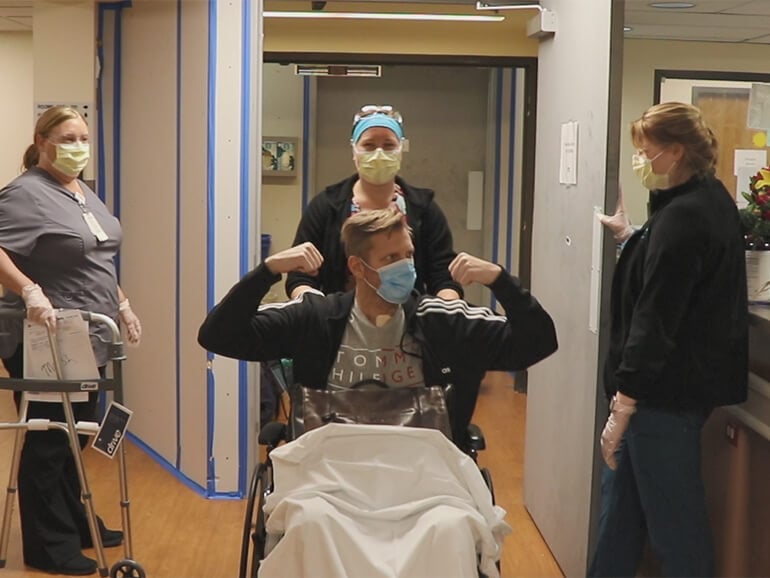James' story

James Marsh wasn’t feeling great. He developed a fever and began to experience difficulty breathing. When his condition worsened, he was admitted to Hunterdon Medical Center. Two days later, James tested positive for COVID-19.
His ability to breath continued to deteriorate and James was placed on a ventilator and had a feeding tube inserted. Complications ensued, including sepsis, a life-threatening infection; an irregular heartbeat; anemia and blood clots; kidney damage and metabolic encephalopathy, a chemical imbalance in the blood that affects the brain.
It took almost four weeks, but James finally stabilized and liberated from the ventilator. He soon transferred to Kessler Institute for Rehabilitation to begin the long road to recovery.
Upon admission, James was weak and debilitated, unable to walk and perform daily activities independently. He still required supplemental oxygen, but was determined to “get back to the same level that I was at before all this happened.”
Working with Kessler’s physician-led team of rehabilitation specialists, James participated in a comprehensive program tailored to his individual needs. In physical therapy, for example, he focused on building his strength, balance and endurance and was soon able to move about with a walker and negotiate stairs. Similarly, in occupational therapy, James increased his strength, skills and stamina. He worked on exercises to improve his breathing and learned new strategies to do everyday tasks safely.
James also benefitted from speech therapy. His speech language pathologist provided a range of breathing exercises to increase his lung capacity and taught him to use a speaking valve to communicate with his family via FaceTime. He received swallowing therapies that would enable him to progress to a regular diet.
His nurses provided medication management, reinforced the strategies he gained in therapy and, in concert with his doctors, focused on weaning James from supplemental oxygen – which allowed him to have his tracheostomy removed.
After three weeks of intensive rehabilitation, James was ready for discharge and he and his wife received training to help ensure a safe transition to home.
James was given a rousing send-off by the staff, to whom he expressed his gratitude, saying “Thank you for everything. You guys are amazing and made all the difference in my recovery.”